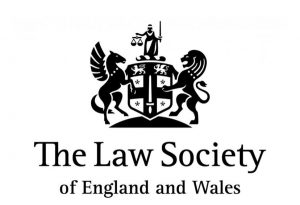Boost for no win no fee claimants in inheritance disputes
The Court of Appeal has recently decided that claimants, in claims against an estate, who fund the litigation via a Conditional fee agreement (CFA) may recover the success fee from the estate. This decision sets a very important precedent because success fees have not been commonly recoverable by the claimants since 2013.
What is a CFA?
As is common in claims against an estate, claimants who can not afford the costs of litigation can instruct lawyers on a CFA basis which is more commonly known as ‘no win no fee.
This is a way of funding litigation for claimants who cannot afford their legal fees upfront and means that lawyers would only be paid in circumstances where a settlement can be reached or if the claimant is successful in Court.
This represents a risk for the lawyer that they may not receive payment for their work if the relevant requirements are not met. To reflect this risk, a ‘success fee’ is usually payable by the claimant in addition to the basic hourly rate charges**.**
Ordinarily, in other forms of litigation, success fees cannot be recovered from the losing party and instead, are paid by the Claimant out of their own pockets (most commonly from the proceeds of their award).
Case background
The case, Hirachand v Hirachand [2021] EWCA Civ1498, involves a claim against the estate of a deceased man by his estranged adult daughter (“the Claimant”).
The deceased had left his entire estate to his widow (the Claimant’s mother) who was also appointed sole executor. The widow was elderly, suffered from ill health, and was living in a care home.
The Claimant suffered from issues relating to her mental health and was financially struggling due to her inability to work. The estate was valued at around £554,000.
The Claimant felt that she should have been provided for by her father, despite being estranged from him, and brought a claim against the estate under the Inheritance (Provision for Family and Dependants) Act 1975(“the 1975 Act”).
One of the factors the Court must consider when making an award under the 1975 act is the Claimant’s outstanding debts.
The Court agreed that the Claimant should be provided for by the estate and made an award in her a favor just shy of £140,000.
Controversially, however, the Court in its calculation of the award included around £16,000 which represented a proportion of the success fee which the claimant was due to pay to her lawyers.
The widow appealed the decision(amongst other reasons) on the basis that the estate should not be liable for any of the success fee incurred by the Claimant. The matter was subsequently escalated to the Court of Appeal.
Decision
The Court of Appeal held that the success fee must be included as part of the Claimant’s debts when assessing the Claimant’s financial need.
The Court considered that the assessment would not provide an accurate picture of the Claimant’s financial position if the success fee was not included as it was of itself an outstanding debt.
Notwithstanding the above, the Court was also quick to emphasise that the decision as to whether to consider the success fee in the award of costs would not be done automatically simply as a matter of course but instead, would be decided on a case-by-case basis.
Also, the Court stated that such awards should only include a contribution to the success fee in circumstances where a CFA was the only viable funding arrangement available to the Claimant.
Comments
On one hand, the Court’s decision provides a significant breakthrough for Claimants who can now (under certain circumstances) recover some of the success fees from the estate. However, it is also important to note that it would be unlikely for most or all of the success fees to be recovered from the estate.
In addition, the inclusion of the success fee to the awarded amount is not definitive as there are additional factors the Courts would consider prior to doing so. This case, therefore, re-iterates the need to reduce legal costs by engaging in settlement negotiations early and avoiding Court proceedings and the unpredictability that comes with the same.
If you have any queries about inheritance act claims or funding, please contact our specialist contentious probate team on 02034173859 or you can complete our online contact form today.
Our Solicitors in Enfield are ready to help today!
The information given here is intended for general information purposes only and should not be taken as legal advice.


